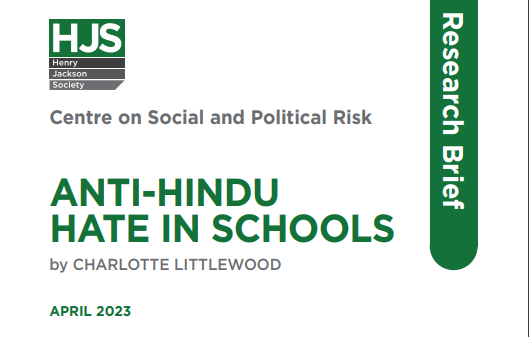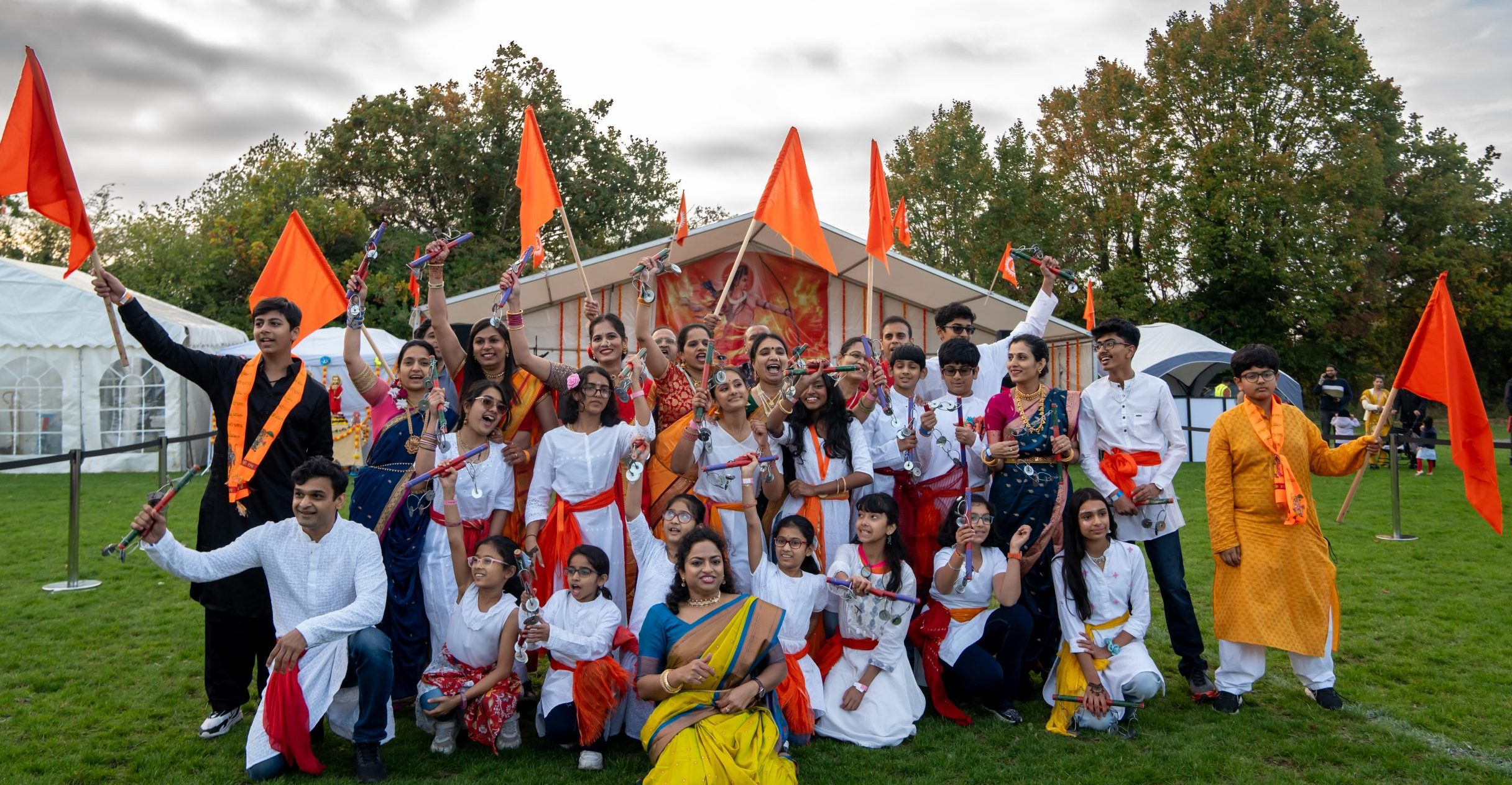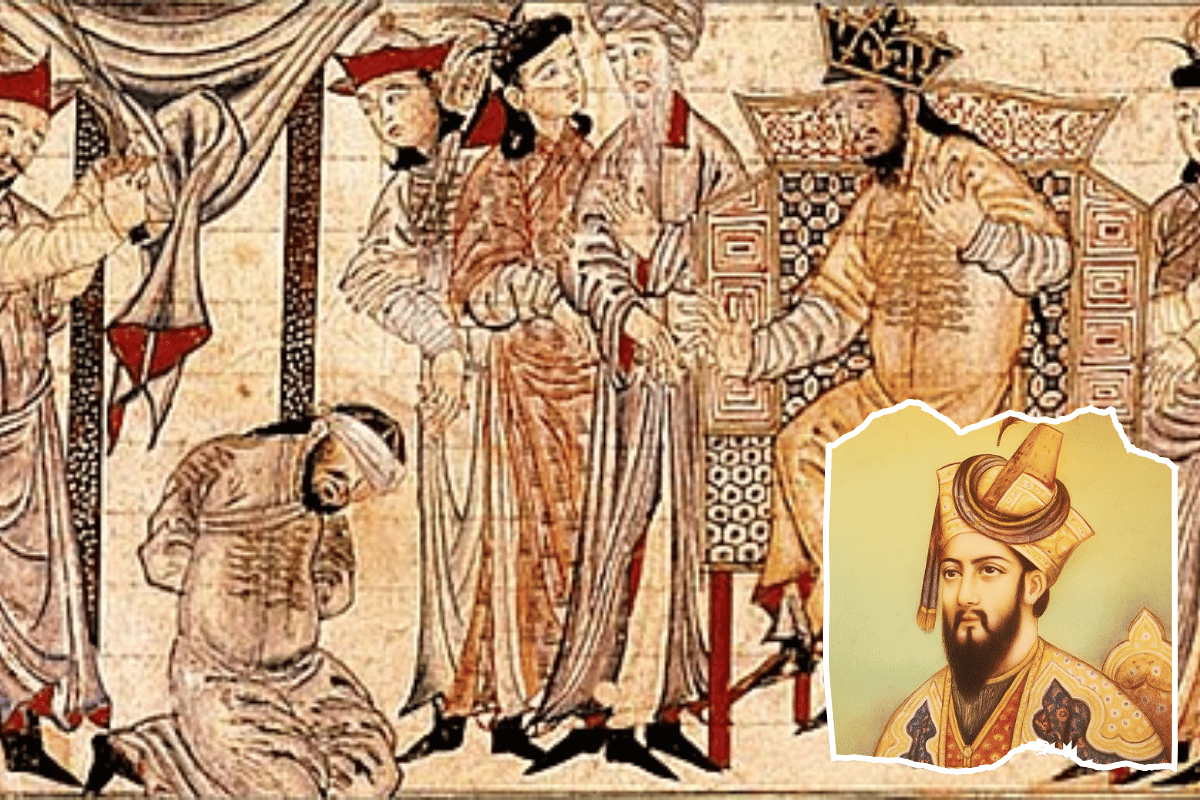
Some of the earliest environmentalists were Hindus. The term “tree hugger” comes from the Bishnoi branch of Hinduism. In 1730, Hindu Bishnois died while trying to protect local trees from being cut.

In the 1970s the Bishnois inspired the Chipko movement, Chipko meaning “to cling” in Hindi. In this movement, they threw their arms around trees that were going to be cut down. This movement spread across India.
The Hindu faith is very environmentally conscious, but positive stories on what the Hindu faith promotes in its literature, such as vegetarianism, animal protection, Ahimsa (causing the least harm in all you do) are rarely if ever, discussed by the BBC in any of its programming.
INSIGHT UK did find one relevant BBC article which was headed with an image of a Muslim woman and it did cover a gay man feeling he was struggling with his Hindu faith.
Any other positive coverage is often relegated to radio. Mainstream Hindu rights movements like the Indian “free Hindu temples” campaign against government control do not get any coverage. Evidence was found of extremely derogatory language used by the BBC to describe Hindu festivals, including calling Holi a “filthy festival”.
In traditional Hindu culture, gifts given during festivals include jewellery which is kept for long periods of time and gains value, rather than disposable gifts. Positive practices during Hindu festivals have never been covered, such as recycling clay pots, using leaves as plates, charity, and respect for animals, to name a few.
In one article, the BBC covers an Indian show and what it terms regressive ideas. Oddly the BBC had placed a photo of a Hindu Pandit (Priest) conducting prayers and subtitled that text underneath it that says “The show has been called out for being regressive and perpetuating biases and outdated ideas”. The placement would make readers think that Hindu prayers were related to regressive ideas.
Plenty of positive pieces on Hinduism can be found online, for example how Black Hindus draw many similarities to African spiritual traditions, but we could not find this coverage from the BBC.
When it comes to general religious programming, INSIGHT UK found evidence on major BBC programming completely missing Hindu representation. For example, their series called “Pilgrimage” put celebrities of different faiths on a journey to spiritual places. The show represented Christians, Sikhs, Muslims and even Atheists. But there was no Hindu representative, even though Hinduism is the third largest religion in the UK and the world.
Another programme called “Back in Time for Birmingham” covered British Asian history, using an Indian Hindu family. There was a short clip in the four-part series covering the family’s religious belief, without any coverage of prejudices Hindus faced from a religious perspective. However, more dedicated parts of the show covered Pakistani Muslims and the problems they faced.
Even though the series also covered sensitive topics related to India (such as 1984 anti-Sikh riots), this coverage was limited to the BHI community. There was little to no coverage of grooming gangs, radicalisation and the diversity of the South Asian community. Our survey identified that 95% of respondents rejected the label “Asian” in any form.
The show was presented by Noreen Khan and Dr Yasmin Khan.
In another article the BBC covered some comments made by Sudha Murty, where she described herself as “a pure vegetarian” and wouldn’t want to use a spoon used for non-vegetarian food [329]. The narrative of the article was yet another to rake up caste and claim her comments are rooted in the caste system and her Brahmin roots.
This shows a lack of understanding of local culture and understanding what this phrase actually means in India. “Pure vegetarian” to Hindus does not mean being “pure” over another person and is not intended to be a part of “othering” non-vegetarians, in the way words like “heathen” or “kafir” identify non-believers of other faith groups. Nor is it restricted to being Brahmin.
But instead for Hindus, being a “pure vegetarian” is a phrase that means they will only eat purely non-animal products, but milk is acceptable. The terminology is widely used in India by various communities, not only by people who are from the same background as Ms Murthy, it being more commonly known as lacto-vegetarianism.
The idea of pure also comes from avoiding contamination, so any cutlery that may have meat remnants is the same as consuming meat. Therefore it is important to ensure cutlery and utensils are clean, hence “pure” and not contaminated.
As an example, the food chain Subway makes their staff change gloves when serving vegetarians sandwiches. Does this mean they are also rooted in the caste system?
Instead of describing what “pure vegetarian” actually means in India, the article uses mostly opinions from X (formerly Twitter) users as to what they thought of her remarks. This could be deemed as scraping the bottom of the barrel to bring up caste again from any obscure angle.
In 2023, INSIGHT UK compared the articles published by the BBC on how Diwali was covered compared to Eid. The coverage of both Eid al-Fitr and Eid al-Adha was covered positively in BBC and focussed only on the festival itself.
However two articles were found on Diwali that made references to the use of fireworks and pollution, despite it being well known that farmers burning crop stubble is a major contributor to air pollution during this season.
In one of the aforementioned articles, the first two sentences barely cover Diwali, the rest is purely about air pollution. The problem here is not the fact the BBC covered both events, but it exclusively chooses to produce negative perceptions of Diwali, not other festivals. It would be better to just focus on Diwali.
However, if the BBC wants to produce “concerns” about the climate when reporting on religious festivals, it should do equally for all religions to keep a balance. For example, would they cover that during Eid al-Adha, a mass butchering of livestock takes place and meat eating is a big contributor to climate change?
Mixing socio-political issues when covering Hindu festivals could make it appear as if they are only covering Diwali so that they can point-score on other issues.
References for this article can be found in the full report.
Download full report







